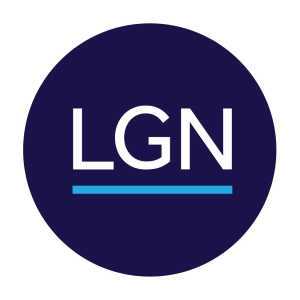Minnesota Congressional Delegation Reacts to Statewide Protests
With the Twin Cities receiving national attention for the last week in the wake of George Floyd’s death, members of Minnesota’s congressional delegation have responded to the unfolding turmoil with a range of statements, letters, and legislative actions.
Minnesota’s Senators, Amy Klobuchar and Tina Smith, received support from 26 of their Senate colleagues in sending a letter to U.S. Attorney General William Barr calling for the Civil Rights Division of the Department of Justice to conduct an investigation into the patterns of racially discriminatory and violent policing in the Minneapolis Police Department.
Minneapolis’s Representative, Congresswoman Ilhan Omar, introduced a resolution in the House with Congresswoman Ayanna Pressley (D-MA-07) to condemn police brutality, racial profiling and the excessive use of force. Representatives Hagedorn, Craig, and Phillips all took to social media to encourage their constituents to be respectful of the weekend’s curfews, while Congresswoman Betty McCollum and Congressman Collin Peterson released statements thanking the Minnesota National Guard for their work to maintain peace in the Twin Cities.
Congressman Tom Emmer released a statement commending the quick initiation of an investigation into Floyd’s death and condemning the subsequent “needless destruction” that has taken place. Congressman Pete Stauber struck a similar tone in his comments on social media.
House Releases New Summer Schedule and Legislative Priorities
Majority Leader Steny Hoyer released a new legislative schedule for the House for summer 2020 late last week, outlining the priorities and timetables currently assumed by the chamber’s leadership. The calendar suggests that the month of June will be almost entirely dedicated to committee work, with the next floor vote scheduled for June 30.
In late June and in July, House Democrats aim to consider legislation including the annual defense policy bill, a water resources bill, appropriations measures, and possibly an infrastructure package. Majority Leader Hoyer’s office said that no changes would be made to the annual August recess if the House completes work on “must-pass” items by end of July.
Committees to Continue Coronavirus Response Efforts This Week
Both the House Senate will be conducting a number of committee hearings this week as the country continues to grapple with the coronavirus pandemic. These are expected to include:
The House Energy and Commerce Oversight and Investigations Subcommittee is planning a virtual hearing tomorrow on how governors are handling the Covid-19 pandemic.
The Senate Judiciary Committee has scheduled a hearing tomorrow to examine incarceration and detention practices affected by Covid-19.
The Senate Banking, Housing, and Urban Affairs Committee has planned a hearing tomorrow on implementation of Title IV of the CARES Act. The section provides $500 billion in emergency Covid-19-related relief for businesses, states, municipalities and tribes.
The House Judiciary Committee has scheduled a virtual hearing Wednesday on voting during the Covid-19 pandemic.
The House Financial Services Consumer Protection and Financial Institutions Subcommittee plans a hearing Wednesday on promoting inclusive lending during the pandemic through community development financial institutions and minority depository institutions.
The House Budget Committee has announced a Wednesday virtual hearing to discuss the economic impacts of Covid-19 with former Congressional Budget Office directors Douglas Elmendorf and Douglas Holtz-Eakin.
The Senate Commerce, Science, and Transportation Committee on Wednesday will examine the effects of Covid-19 on critical infrastructure and transportation.
The House Appropriations Labor-HHS-Education Subcommittee will hear testimony from CDC Director Robert Redfield on Covid-19 response Thursday.
The Senate Health, Education, Labor and Pensions Committee will hold a hearing Thursday on Covid-19 and students going back to college safely.
House Appropriators to Get Late Start in Bill Markups
House appropriators will start their markup season in late June, about a month and a half later than usual, racing to get bills out of the committee in the middle of the summer under a condensed legislative schedule due to the coronavirus. The delayed appropriations schedule is another sign it will be difficult to get any spending measures signed into law before the September 30 deadline other than a stopgap measure.
Appropriators will begin “subcommittee and full-committee markups at the end of June and beginning of July,” Majority Leader Hoyer said in a letter to members on Friday. Marking up appropriations bills starting in late June is a late start compared to normal years, though even under less urgent circumstances there have sometimes been delays that led the House committee to continue its work well into July.
Last year, House appropriators had their first fiscal 2020 subcommittee markup April 30, their first full committee markup May 8, and their last markup June 11. Historically, appropriations bills have also been more difficult to get through the House and Senate during presidential election years.
